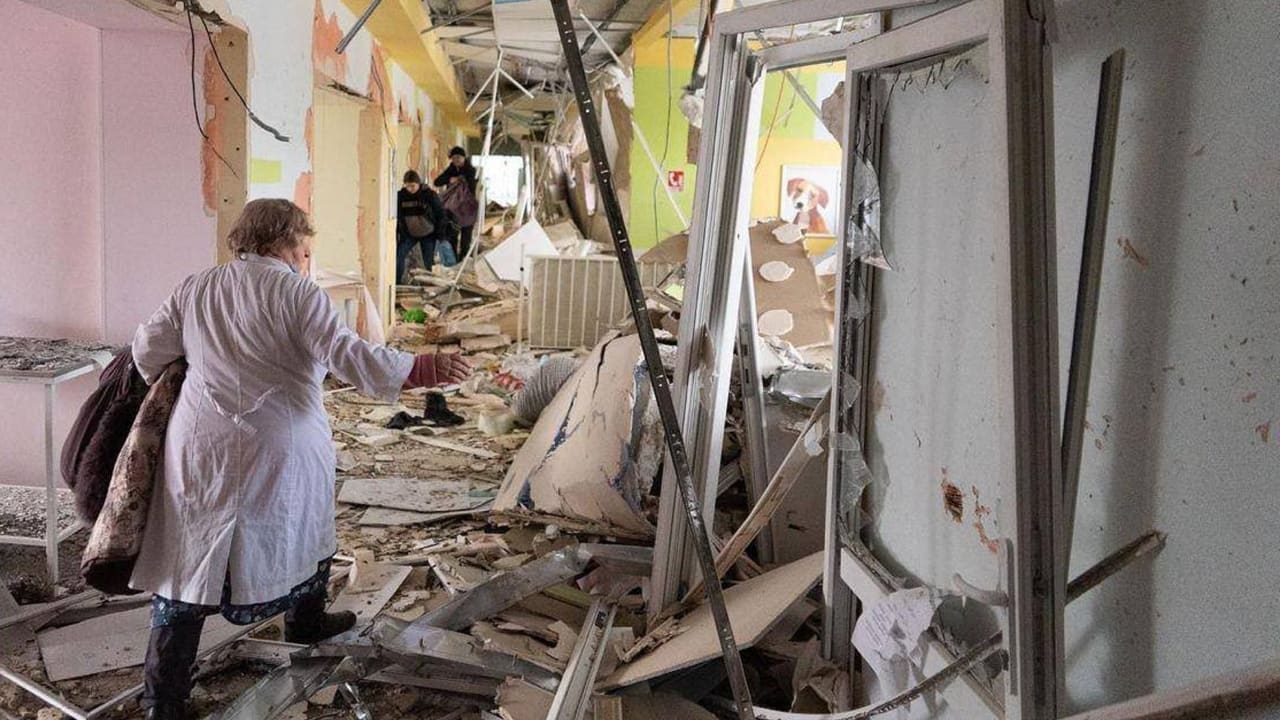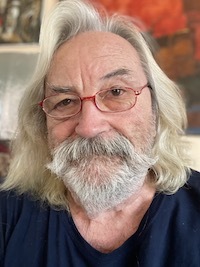For days now, the eyes of the world have been on the Ukrainian capital, Kyiv. Night after night, families wait in subway tunnels and shelters to avoid falling victim to Russian air raids. Mayor Vitali Klitschko (50) and President Volodymyr Zelenskyj (44) expect a major Russian offensive to reduce Kyiv to rubble.
But the battles for other Ukrainian cities are no less brutal. The bloodiest example is the 450,000-inhabitant city of Mariupol on the Azov Sea, where the murderous Russian despot Vladimir Putin (69) is now having hospitals bombed.
The baseness is hard to believe: On Wednesday, the Russians destroyed a maternity clinic with another attack. According to Deputy Mayor Sergei Orlov, three people died, including a girl. Orlov told the British broadcaster BBC that seventeen people were injured, including pregnant women.
The attack on the clinic caused horrified reactions in international politics:
► The spokesman for the French government, Gabriel Attal (32), condemned the attack as "inhuman and cowardly." Targeting women, children, and caregivers is "incredible," he told RTL on Thursday.
► British Prime Minister Boris Johnson (57) wrote on Twitter: "There are few things more heinous than targeting the weak and defenseless." He declared that Putin would be "held accountable for his terrible crimes."

Zelenskyy called on his compatriots and the European community to condemn the "atrocities." He called the current attack by the Russian invaders "war crimes." The President declared that the situation in Mariupol "reflects all the evil that the occupiers have brought to our country."
In fact, the population of Mariupol has been hit hardest. At the start of the Russian invasion, the city in the self-proclaimed "Donetsk People's Republic" was one of the first cities to be attacked. As a result, the city has been without water and electricity for more than a week - the situation has long been described as a humanitarian catastrophe.
A location that is anything but a coincidence...
Why Mariupol is so important to Putin
The capture of Mariupol is of central importance for Russian ruler Putin, which he is trying to underline with his brutality. For him, the city in the very south-east of Ukraine has threefold strategic value:
► First, taking the city would smooth the corridor between Crimea, annexed in violation of international law in 2014, and mainland Russia.
► Secondly, Mariupol is the most important economic metropolis on the Azov Sea.
► Thirdly, Putin would have a metropolis in the self-invented "People's Republic" under his control.
Above all, however, Putin would close a gap that he failed to close in 2014 and 2015: after the annexation of Crimea, he could not take Mariupol - and now wants to celebrate a triumphant return under the flag; of the "People's Republic."
The Russian ruler is fine with any means - including merciless terror from the air to break the solid Ukrainian resistance. A terror, as we already know from the barbaric intervention of Russia in Syria. Putin's hope: to increase the pressure on the defenders from within and ultimately persuade them to surrender to put an end to the suffering.
Mass graves for the dead
According to a news agency report, the countless dead – combatants, civilians, those in need of protection – are even buried in mass graves. Yet, the search for survivors under the rubble continues simultaneously.
These are images that are a cruel reminder of the atrocities committed by the Nazis in World War II: Between 1941 and 1943, the SS also raged in Mariupol, murdering tens of thousands of people. At that time, too, mass graves were dug in the city – Putin's hail of bombs brought back traumatic memories for the whole of Ukraine.
The fight for evacuations
To prevent further suffering in the civilian population, attempts have been made for days to push ahead with evacuations from the city - but since Sunday, repeated attempts via a humanitarian corridor have failed because previously agreed ceasefires do not hold.
But despite the dramatic situation, Ukraine made it clear on Thursday that Putin cannot expect to surrender for the time being. As the Ukrainian Foreign Minister Dmytro Kuleba (40) said after a meeting with Russia's Foreign Minister Sergey Lavrov (71) in Antalya (Turkey), there had been no progress in the talks. As a result, it was not possible to agree on humanitarian corridors for Mariupol.
Kuleba explained that Ukraine had thwarted Russia's plan: "Russia will not get a surrender from Ukraine." His country is committed to a balanced diplomatic solution
 JustTheFacts Max -
-
News -
Mariupol Massacre
Zelenskajas
Vitali Klitschko
-
2K views -
0 Comments -
0 Likes -
0 Reviews
JustTheFacts Max -
-
News -
Mariupol Massacre
Zelenskajas
Vitali Klitschko
-
2K views -
0 Comments -
0 Likes -
0 Reviews
Share this page with your family and friends.